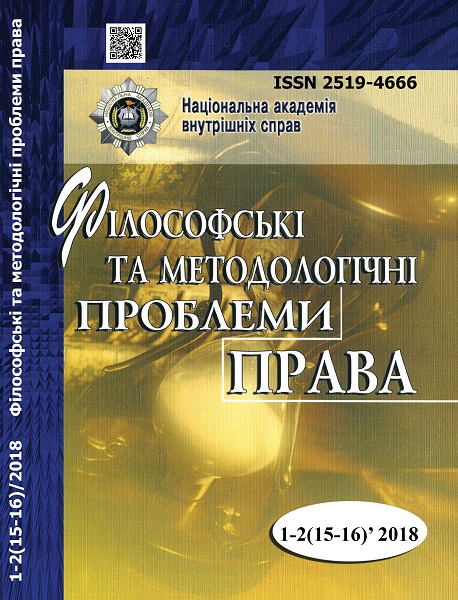Philosophical and Legal Principles of the Formation of an Information Society in the United States of America
Abstract
The article is devoted to the actual issue of the present related to the formation of the information society. In the basis of the study, the author put a philosophical concept, the essence of which is to recognize the hypothesis that modern civilization in the mid-50ʼs entered the third era of genesis – informational, which is the next after the agrarian and industr. Its essence is the separation of information (intangible substance) as determinant in the relationship in human society, between society and state, man and state, people between themselves. If the previous two stages of human development were firmly tied to the object of activity (land or means of operation – machines and mechanisms), today the information has become universal. Proceeding from the fact that the United States is the undisputed global leader in the development of advanced technologies and economic development, not only purely from an economic point of view, but also from an ideological and philosophical point of view, the author thoroughly examines the US experience in defining the philosophical and legal principles and the introduction of a protection mechanism rights and freedoms of citizens within the information space. Based on the results of the study, the conclusion was made on the necessity of implementation of this experience in the legislative and enforcement activities of the domestic bodies of state power.
Downloads
Abstract views: 156 PDF Downloads: 56
Copyright (c) 2019 Philosophical and Methodological Problems of Law

This work is licensed under a Creative Commons Attribution-NonCommercial-NoDerivatives 4.0 International License.
- Authors reserve the right to authorship of their own work and transfer to the magazine the right of the first publication of this work under the terms of the Creative Commons Attribution License, which allows other persons to freely distribute published work with mandatory reference to authors of the original work and the first publication of an article in this magazine.
- Authors have the right to enter into separate additional agreements on non-exclusive dissemination of the work in the form in which it was published in the journal (for example, to post an article in the institution's repository or to publish as part of a monograph), provided that the link to the first publication of the work in this journal is maintained.
- The journal's policy allows and encourages the posting of articles by authors on the Internet (for example, in electronic storehouses of institutions or on personal websites), both before the submission of this manuscript to the editorial office and during its editorial processing, as this contributes to the creation of a productive scientific discussion and positively affects the efficiency and dynamics of citing the published work.




